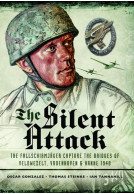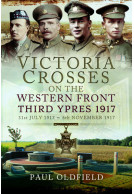Hitler's Spanish Division (Hardback)

Pages: 120
ISBN: 9781473878877
Published: 13th January 2020
(click here for international delivery rates)
Need a currency converter? Check XE.com for live rates
On 22 June 1941, Hitler’s armies launched Operation Barbarossa and swept in to the Soviet Union. On the same day, the Spanish Foreign Minister, Ramon Serrano Suner, contacted the German embassy in Madrid with an extraordinary proposal – would the German government welcome the addition of a force of Spanish volunteers in the war against the Russians?
Officially designed by the Wehrmacht as the 250th Infantry Division, but commonly referred to as the Azul or Blue Division after the colour of Spain’s Falangist (Fascist) Party, this force initially amounted to some 18,000 volunteers under the command of the fiercely anti-communist General Agustin Munoz-Grandes. Of the first 18,694 men who entrained for Germany during July 1941, seventy percent, including every officer from captain on up, were from the regular army, whilst most of the rest were Spanish Civil War veterans.
By the time that the Blue Division returned home, 47,000 Spaniards had been involved in fighting on the Russian front. There were 22,000 casualties: 4,500 dead, 8,000 wounded, 7,800 sick and 1,600 suffering from frostbite. As the authors reveal, Spaniards also volunteered or served in other units or organisation.
This highly-illustrated book examines the history, personalities, and uniforms and equipment of those men and women who volunteered to serve alongside Hitler’s armies. Along with full-colour drawings, there are many rare photographs provided by survivors.
"This is a beautifully illustrated book of 115 pages. It is chock-full of period photographs of individuals, group shots, equipment, documents, medals and decorations...a nice addition to the library of any World War II buff."
Toy Soldier Collector & Historical Figures
A long-awaited and superbly documented work.
Miniaturas JM
Read the full Spanish review here
A very well researched book providing the answer for Spain's assistance to Germany in WWII.
The Anglo-Zulu War Historical Society, reviewed by Dr Adrian Greaves
This is a book above all for readers who are into militaria and scale models. But readers more interested in studying volunteer movements, especially Falangist/Fascist volunteers, are at the same time provided with an overview of the Spanish presence on the Eastern Front, plus a rather good glimpse into how much Eastern Front veterans affected the postwar Spanish Armed Forces.
Lars Gyllenhaal
Read the full review here
The Spanish volunteers fighting alongside the Germans on the Eastern Front have received very little attention from English language histories. This new book provides a concise history of their participation, with a text supported by lavish illustration. – Very Highly Recommended.
Firetrench
Read the full review here
The authors have taken a different angle by recounting the history of the individuals serving in the Blue Division rather than a plain Divisional history, but it is a fascinating book to read. It brings to life the characters involved in the Division and why they fought. If you want to know the personal reasons for so many volunteers from Spain who wanted to fight the Soviets, then this book truly excels. It gives the personal element missing from plain Divisional histories and it is lovely to read, and you will be enlightened accordingly.
Military Archive Research, Dr Stuart C Blank
As featured on The View From The Turret
The View From The Turret Vlog
I am going to say this was an interesting book indeed, it just made a change from the usual WW2 books I read I suppose... the illustrations and pictures are excellent.
UK Historian
Read the full review here
The authors and the illustrator give us a small gem that introduces us to the history of a Division that has made itself known on the Eastern Front.
Old Barbed Wire Blog
Read the full review here
Much has been written about the División Azul in the Spanish language but little has been translated into English until now. This book follows on from Lake Ilmen: The Wehrmacht Front to the Red Army which was published by Pen and Sword last year. Like its predecessor, this latest work is sumptuously illustrated with a meticulous attention to detail. The mix of high quality drawings and original photographs complement the biographies very well. Whilst it doesn’t cover the full history of the admittedly small-scale Spanish involvement in the Second World War as comprehensively as many would like it is something of a visual feast for anyone interested in the uniforms and weapons of the period.
Phil Curme
Read the full review here
The archive images, pictures of preserved equipment/militaria will please historians, modellers and reenactors alike. The many individual stories illustrate how many Spaniards played a part in the war on the Eastern Front and therefore commemorates them for their families. An interesting book tackling a relatively small (in comparison to the total numbers involved in Russia) combat force but nevertheless important contribution from Spain, a country still recovering from their own destructive civil war. Another useful reference for anyone studying WW2 on the Eastern Front or with a particular interest in Spanish military history.
Military Model Scene, Robin Buckland
Read the full review here
As featured 'ON THE SHELF'
Wargames Illustrated, September 2017
About Lucas Molina Franco
Lucas Molina Franco was born in Ferrol in 1965. He has a graduate degree in Economics and Business Science and a doctorate in Contemporary History. He has worked as a technical officer in the Regional Government of Castile and Leon while teaching as a university lecturer in Macroeconomics and Business Economics. He is currently editor of ARES, a journal of military history and current military affairs.
Spanish Republicans and the Second World War Republic Across the Mountains (Hardback)
Spanish Republicans and the Second World War tells the stories of the 500,000 Spanish Republicans that fled across the Pyrenees in 1939 as Catalonia fell to Franco’s victorious army in the final weeks of the Civil War. Many of the exiles played an active part in the Second World War. Some joined the French and British armed forces and saw action in various theatres including Africa and Europe (both in 1940 and after D-Day). In August 1944, Spanish Republicans in the La Nueve Company of General Leclerc’s Deuxième Blindée were the first Allied troops into Paris during the liberation of the…
By Jonathan WhiteheadClick here to buy both titles for £44.99





















